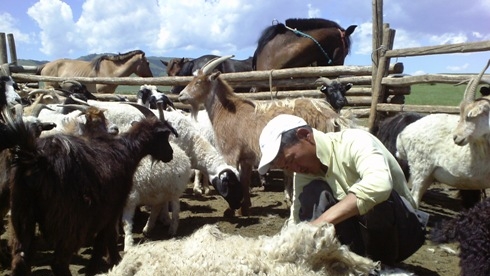Dzud is the Mongolian term for a winter weather disaster in which deep snow, severe cold, or other conditions render forage unavailable or inaccessible and lead to high livestock mortality. Dzud is a regular occurrence in Mongolia, and plays an important role in regulating livestock populations.
However, dzud, especially when combined with other environmental or socio‐economic stresses and changes, can have a significant impact on household well‐being as well as local and national economies.
Mongolia has experienced documented changes in climate in the past 60 years, and extreme events such as dzud may potentially increase in frequency and magnitude with future atmospheric changes.
Therefore, understanding the effects of dzud on herder households and communities, and identifying the strengths and limitations of existing household, community and government coping and adaptive responses to dzud is critical to developing effective strategies to adapt to climate change and manage pastoral risk related to weather disasters.
In the winter of 2009‐2010 Mongolia experienced the most severe dzud since the consecutive dzud winters of 1999‐2002. The 1999‐2002 dzud was an important catalyst for a number of donor‐led efforts to improve pasture and livestock management and risk preparedness using community‐based approaches. In the 2009‐2010 dzud, about 8.5 million livestock had died, approximately 20% of the country’s livestock population, affecting 769,000 people or 28% of Mongolia’s human population.
According to the Red Cross, 220,000 herding households were affected of which 44,000 households lost all of their livestock and 164,000 lost more than half their herd.
This study aims to learn from this disaster to help inform and improve current and future response measures, including community-based rangeland management.


